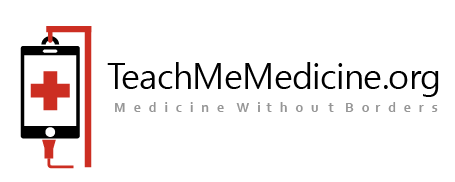Emergency Medicine Curriculum – Students will have to learn and be tested on the following information laid out in the curriculum*. All information can be accessed in the resources and lecture videos listed below the curriculum.
The student will demonstrate the ability to obtain important information and data for an emergency medicine patient.
The student will:
- Develop the skills to evaluate an undifferentiated patient
- Develop a hierarchy of differential diagnoses based on the initial patient presentation
- Include worst-case diagnoses in the differential diagnosis
- Development a management plan for the evaluation of the patient
- Interpret the results of common diagnostic tests and procedures
The student will understand and demonstrate effective care of the emergency medicine patient.
The student will:
- Obtain an accurate history and physical exam focused on key problems
- Recognize immediate life-threatening illnesses
- Develop an evaluation and treatment plan
- Monitor the response to therapeutic interventions
- Make proper disposition and follow-up plans for the patient
- Learn the indications and contraindications for basic procedural skills
- Perform basic procedural skills
- Discuss preventable injuries and illnesses
- Educate patients and insure comprehension of their outpatient treatment plan
The student will effectively use available information technology to solve patient care problems, improve knowledge base, and present cases clearly.
The student will make clinical care decisions that apply knowledge of the role of the ED in the hospital and greater community.
The student will:
- Make an appropriate referral from the ED
- Develop an understanding of the relationship between the ED physician and consultants
- Show understanding of the role of the emergency department in the community, including access to care and its impact on patient care
- Show an awareness of medication and treatment costs
The student will demonstrate humanistic qualities appropriate for a physician-in-training
The student will:
- Effectively communicate with patients and family members
- Show compassion and a nonjudgmental approach to all patients
- Work in a collegial manner within a health care team
The student will demonstrate the ability to effectively present a patient encounter
The student will:
- Present cases in a complete, concise, and orderly pattern
- Clearly delineate primary problems and a management plan
- Complete documentation that is accurate, well organized, and appropriate for the level of care provided
The student will demonstrate a good work ethic.
The student will:
- Be conscientious, on time, and responsible
- Exhibit honesty and integrity in patient care
The student will demonstrate ethical medical decision-making.
The student will demonstrate professionalism at all times.
The student will:
- Exercise accountability
- Maintain a professional appearance
- Show sensitivity to cultural issues (age, gender, cultural differences, disability, etc.)
*Emergency Medicine Curriculum – This curriculum is a curriculum formed by the Wright University School of Medicine.
